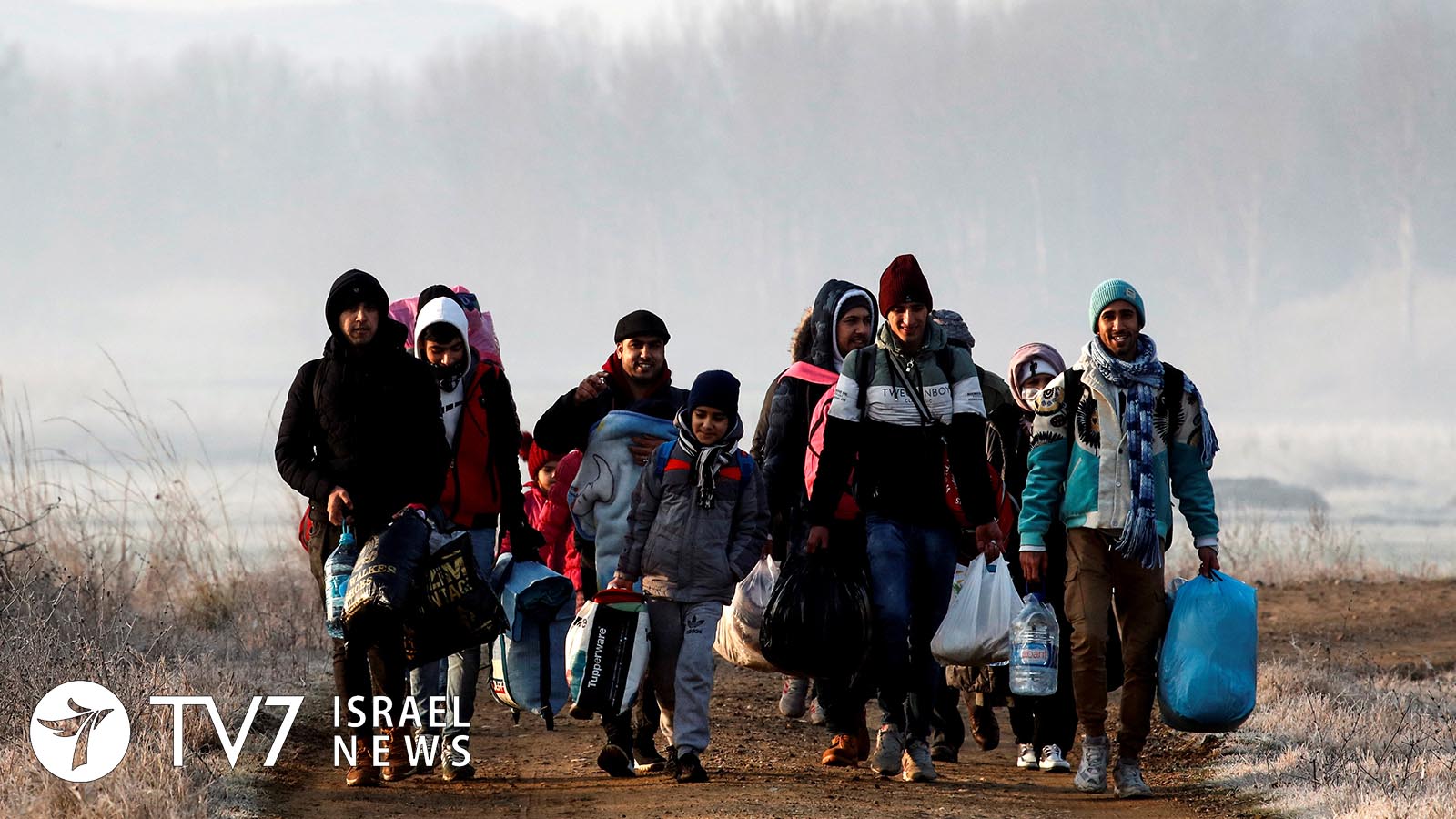European Commission President Ursula von der Leyen is calling for the European Union to update its migration pact with Turkey.
“We won’t need as much acute humanitarian aid as in the past, but the people need to have a perspective,” she told reporters on a visit to Berlin.
Von der Leyen’s statements come ahead of an EU summit set to discuss a renewal of the 2016 deal.
“It is important that we continue to support Turkey, with 3.7 million Syrian refugees living there, some of whom have been in Turkey for 10 years,” she stressed.
The US envoy to United Nations praised Turkey‘s efforts in hosting Syrian refugees earlier this month on 4 June. Following a meeting with Turkish Foreign Minister Mevlüt Çavuşoğlu in Ankara, Ambassador Linda Thomas-Greenfield said, “I have seen firsthand how Turkey is generously receiving refugees in working to integrate them effectively into the economy and the country,” adding, “What I was told by the International NGO community and by the refugees themselves is that without this … they would die.”
Hundreds of thousands of Syrians have been killed since outbreak of civil war in 2011, when the regime of President Bashar al-Assad cracked down on pro-democracy protesters. The United Nations estimates that more than six million Syrians were internally displaced by the fighting, while around five million others fled into other countries.
A vast 65.5% majority of 3,678,257 Syrian refugees are in Turkey, according to the latest data by the United Nations High Commissioner for Refugees (UNHCR). By comparison, 15.2% (855,172) are in Lebanon, 11.9% (666,692) are in Jordan, 4.4% (247,305) in Iraq, 2.4% (132,408) in Egypt, and 0.6% (31,657) in North Africa.
A series of surges into Turkey began in June of 2011, with the highest number recorded in a single day was in April 2012 when at least 2,500 people rushed across Turkish-Syrian border.
The EU proved €3,200,000,000 ($983,133,440) in financial aid to help Ankara cope with the crisis in November 2015. EU-Turkey Statement in March 2016, when the EU committed to several political concessions and the additional donation of €3 billion ($3,582,450,000) more in aid, in exchange for Turkey’s agreement to tighten border controls to curb migrant flows into Europe and re-admit Syrians who had entered Greece.
Turkey has repeatedly accused the EU of not honoring its promises per the 2016 deal.
Last April, EC President von der Leyen expressed her commitment to the continuity of European funding to refugees and the host communities.
Following a meeting with President Recep Tayyip Erdoğan in Ankara, she told a news conference while standing alongside European Council President Charles Michel that, “The Commission will soon make a proposal that reflects these principles.”
Von der Leyen also stressed, however, that Turkey must respect the rule of law and implement rulings by the European Court of Human Rights, in an expression of alarm over the country’s withdrawal from the Istanbul Convention that was designed to women’s rights and other critical matters.
The EU chiefs, who last held in-person talks with Erdoğan a year ago, said they would cooperate with Ankara in three areas if the de-escalation continues – including improving economic ties, a formula to support refugees in Turkey and strategies to increase mobility.
This, amid a backdrop of friction between Turkey and EU members Greece and Cyprus over energy resources and jurisdiction in the eastern Mediterranean Sea that strained ties with the bloc, particularly last August when Turkish and Greek navy frigates escorted vessels exploring for hydrocarbons.
Ankara has accused Brussels of bias for its support of Athens in the decades-old conflict.
After Erdoğan adopted a more conciliatory tone in the wake of months of tensions, the 27-member bloc signaled an improvement in relations during a March summit by announcing intent to work toward the provision of more funds for the refugees while deepening trade ties – while simultaneously cautioning that it could impose sanctions if Turkey resumed energy exploration in the disputed Mediterranean waters.
The EU also voiced concern over Ankara’s human rights record, particularly the petition by the state prosecutor of Supreme Court of Appeals to shut down the country’s 3rd largest political faction, the pro-Kurdish Peoples’ Democratic Party (HDP); over which the United States has also been critical.
At the same time, the EU said it would consider modernization of a Customs Union Turkey demanded, that would allow the unhindered flow of its goods and services into the market of the world’s largest trading bloc.
